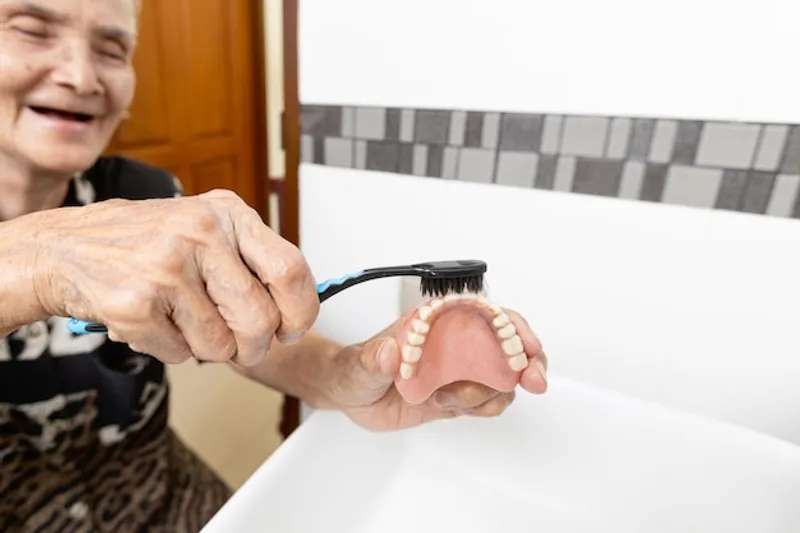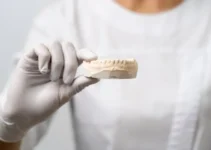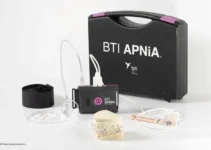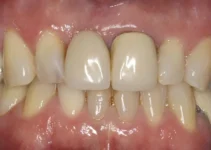Proper dental implant care is crucial for maintaining their longevity and preventing potential complications. Just like natural teeth, implants require regular cleaning and specific maintenance routines to ensure they remain in perfect condition. While dental implants are designed to be durable, neglecting their care can lead to peri-implantitis, a condition that may compromise the implant’s stability and your oral health. Understanding the right cleaning techniques and maintenance practices will help protect your investment and ensure your dental implants continue to function effectively for years to come.
Benefits of cleaning your teeth if you have dental implants
Maintaining proper oral hygiene with dental implants is not just a recommendation—it’s a crucial requirement for long-term success. Research shows that well-maintained dental implants can have a success rate of up to 98% after 10 years, making them one of the most reliable dental restoration options available. Regular cleaning and maintenance help prevent complications and ensure your investment continues to provide optimal functionality and aesthetics.
The benefits of proper dental implant care extend beyond basic oral health. Studies published in the Journal of Clinical Periodontology indicate that patients who follow strict maintenance protocols experience significantly fewer complications and enjoy better overall oral health outcomes. This includes maintaining healthy gum tissue, preventing bone loss, and ensuring the stability of both the implant and the crown.

Regular maintenance also helps protect your financial investment. While the initial cost of dental implants may be significant, proper care can help avoid expensive complications and the need for additional treatments. The American Academy of Implant Dentistry emphasizes that professional cleaning and regular check-ups are essential components of long-term implant success.
Preventing periodontal diseases and infections
Peri-implantitis, a severe inflammatory condition affecting the tissues around dental implants, poses a significant threat to implant longevity. Clinical studies indicate that approximately 20% of implant patients may develop peri-implantitis within 5 years if proper maintenance protocols are not followed. However, this risk can be dramatically reduced through regular professional cleaning and proper home care.
Research published in the International Journal of Oral & Maxillofacial Implants demonstrates that patients who maintain strict cleaning routines experience significantly lower rates of bacterial colonization around their implants. The key factors for preventing infections include:
- Daily brushing with soft-bristled brushes
- Regular use of interdental brushes or water flossers
- Professional cleaning every 3-6 months
- Immediate attention to any signs of inflammation
The European Association of Osseointegration reports that early detection and prevention of peri-implant diseases can save up to 90% of affected implants from failure, highlighting the importance of regular maintenance visits and proper home care routines.
Extending the lifespan of your dental implants
Scientific evidence strongly supports the correlation between proper maintenance and implant longevity. A comprehensive 15-year study published in the Journal of Dental Research showed that implants maintained through regular professional cleaning had a survival rate of 93%, compared to only 74% for those without regular maintenance.
The key to maximizing implant lifespan lies in understanding and following proper care protocols. Research indicates that the most successful maintenance routines include:
- Professional cleaning every 3-4 months
- Daily use of specialized cleaning tools
- Regular x-ray monitoring
- Immediate attention to any changes in implant feel or appearance
Studies from the International Journal of Implant Dentistry demonstrate that patients who maintain consistent care routines can expect their implants to last 20 years or more, with many lasting a lifetime when properly maintained. The evidence clearly shows that investing time in proper maintenance is crucial for ensuring the long-term success of dental implants.
If you’re interested in learning more about dental implant care and maintenance, we encourage you to explore our other articles on advanced cleaning techniques and the latest developments in implant technology. Our comprehensive guides will help you protect your investment and maintain optimal oral health for years to come.
How to clean your teeth if you have a dental implant?
Maintaining proper oral hygiene with dental implants is crucial for their long-term success. Unlike natural teeth, dental implants don’t develop cavities, but they can be affected by peri-implantitis, a condition similar to gum disease that can lead to implant failure if not properly managed.
The key to successful implant maintenance lies in consistent and thorough cleaning practices. Research shows that patients who follow proper cleaning protocols have a significantly higher implant success rate, with studies reporting success rates of up to 98% after 10 years.
It’s essential to understand that dental implants require special attention because they interface differently with gum tissue compared to natural teeth. The connection between the implant and surrounding tissue creates unique areas that need specific cleaning approaches to prevent bacteria accumulation.
Daily cleaning routine
Your daily implant cleaning routine should be systematic and thorough. Start by brushing at least twice daily using a soft-bristled toothbrush at a 45-degree angle to the gum line. Make gentle circular motions, paying special attention to all surfaces of the implant crown.
Follow these essential steps for optimal implant care:
- Brush for at least two minutes each session
- Clean around the implant crown thoroughly, especially at the gum line
- Use interdental cleaning tools after each meal
- Rinse with an alcohol-free antimicrobial mouthwash
For patients with multiple implants, consider using a modified Bass technique, which has been shown to be particularly effective in removing plaque around implant surfaces.
Essential cleaning tools and products
Investing in the right cleaning tools is crucial for maintaining your dental implants. The most important tools include:
- Soft-bristled toothbrush or electric toothbrush with pressure sensors
- Water flosser with specialized implant tips
- Interdental brushes in various sizes
- Non-abrasive, implant-specific toothpaste
- Unwaxed tape or implant-specific floss
Water flossers have shown particular effectiveness in cleaning around implants, with studies indicating up to 30% better plaque removal compared to traditional flossing methods.
When selecting products, avoid abrasive toothpaste containing baking soda or stain removers, as these can scratch the implant surface. Instead, opt for specifically formulated implant-care products recommended by your dental professional.
Professional cleaning requirements
Regular professional cleanings are essential for implant longevity. Research indicates that patients who maintain regular professional cleaning schedules have significantly lower rates of peri-implantitis and other complications. Professional cleanings should be scheduled every 3-6 months, depending on your individual risk factors. During these appointments, your dental professional will:
- Assess implant stability and integration
- Check for signs of inflammation or infection
- Remove any calculus or biofilm buildup
- Polish the implant crown using specialized instruments
These professional sessions are crucial as they allow early detection of potential problems and ensure the long-term success of your dental implants. Studies show that patients who maintain regular professional cleaning schedules have up to 90% lower risk of developing peri-implantitis. If you’re interested in learning more about dental implant care and maintenance, we encourage you to explore our other articles about advanced cleaning techniques and the latest developments in implant technology. Your journey to optimal oral health doesn’t stop here!
Tips for maintaining a dental implant
Proper maintenance of dental implants is crucial for their long-term success. Regular cleaning and care not only protect your investment but also ensure optimal oral health. The key to implant longevity lies in maintaining excellent oral hygiene through daily cleaning routines and regular professional check-ups.
Studies have shown that proper implant maintenance can lead to success rates of over 95% after 10 years. This includes using specialized cleaning tools such as soft-bristled brushes, water flossers, and interdental brushes designed specifically for implant care. It’s essential to clean not only the visible crown but also the area where the implant meets the gum tissue.
Professional maintenance should include regular visits to your dentist every 3-6 months for thorough cleaning and examination. During these visits, your dentist will assess the stability of your implant, check for signs of inflammation, and perform professional cleaning using specialized instruments that won’t damage the implant surface.
Dietary considerations
Your diet plays a significant role in maintaining the health of your dental implants. While implants are strong and durable, certain foods can potentially cause damage or contribute to complications. Hard or sticky foods should be consumed with caution to prevent unnecessary stress on your implants.
Here are some dietary recommendations for optimal implant health:
- Avoid extremely hard foods like ice, hard candies, or nuts in the early healing phase
- Limit sticky foods that could dislodge the crown
- Include calcium-rich foods to support bone health
- Maintain adequate protein intake for tissue healing
- Stay hydrated to promote good oral health
Research indicates that a balanced diet rich in vitamins C and D can significantly contribute to the long-term success of dental implants by supporting bone health and immune function.
Lifestyle habits to protect your implants
Certain lifestyle choices can significantly impact the longevity of your dental implants. Smoking is particularly detrimental to implant success, with studies showing that smokers have a higher risk of implant failure compared to non-smokers. If you smoke, consider quitting or at least reducing your tobacco use.
Physical activities and sports participation should be approached with caution. Wearing a proper mouthguard during contact sports is essential to protect both natural teeth and implants from potential trauma.
Stress-related habits like teeth grinding (bruxism) can also affect implant stability. If you grind your teeth, your dentist may recommend wearing a night guard to protect your implants and natural teeth during sleep.
Warning signs and when to see your dentist
Being proactive about potential implant problems is crucial for maintaining their health. Early detection of issues can prevent more serious complications. Watch for these warning signs:
- Unusual pain or discomfort around the implant
- Bleeding or swollen gums near the implant
- Visible recession of the gum line
- Difficulty cleaning around the implant
- Any mobility in the implant or crown
According to clinical studies, the most critical period for implant complications is within the first year after placement. However, problems can arise at any time, making regular check-ups essential.
If you experience any of these symptoms, don’t wait for your next scheduled appointment. Contact your dental professional immediately to prevent potential complications and ensure the longevity of your implant.
For more information about dental implant care and maintenance, we invite you to explore our other articles on topics such as advanced cleaning techniques, the role of PRGF in implant healing, and the latest developments in implant technology. Your journey to optimal oral health doesn’t end with implant placement – it’s an ongoing commitment to proper care and maintenance.
Essential Guide to Dental Implant Care and Maintenance
Proper maintenance and regular check-ups are crucial for the long-term success of your dental implants. Here are the key aspects you need to know about keeping your implants in optimal condition and ensuring their longevity through periodic examinations.
How often should I schedule check-ups for my dental implants?
Regular check-ups should be scheduled every 6 months, or as recommended by your dentist. These appointments are essential to monitor the condition of your implants and detect any potential issues early on.
What signs should alert me to contact my dentist immediately?
Contact your dentist right away if you notice any prosthesis loosening, minimal mobility, broken fragments, unusual discomfort, or changes in how your implant feels when biting. Early intervention can prevent more serious complications.
Why are professional examinations important after getting dental implants?
Professional examinations are vital because they allow your dentist to assess the stability of your implants, check the surrounding tissue health, and ensure proper integration. These check-ups help maintain the long-term success of your implant treatment.




